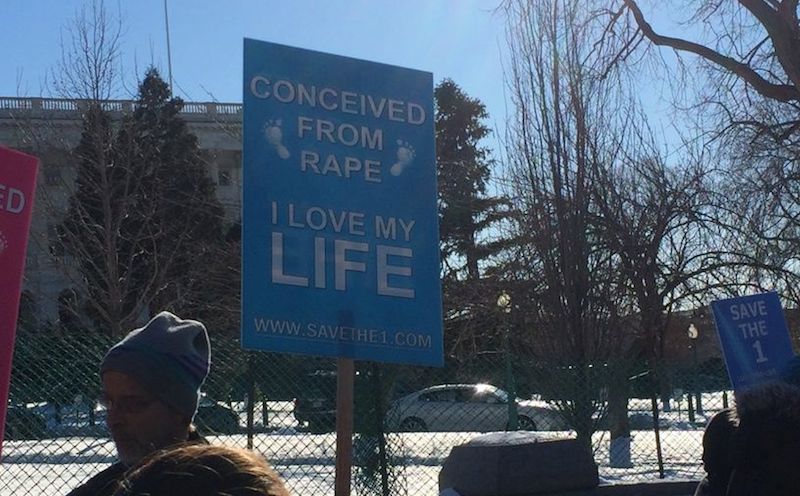God: Imaginary Friend?
The other day I was pleased to discover that Catholic Answers have put up on YouTube the entire debate of Trent Horn with atheist Dan Barker entitled “God: Supreme Being or Imaginary Friend?”
"We are travellers…not yet in our native land" – St. Augustine
The other day I was pleased to discover that Catholic Answers have put up on YouTube the entire debate of Trent Horn with atheist Dan Barker entitled “God: Supreme Being or Imaginary Friend?”

 It’s Theology On Tap season again! This series kicked off with Fr. Anthony Saroki speaking on “Angels & Demons: Who are they and how do they influence us?”:
It’s Theology On Tap season again! This series kicked off with Fr. Anthony Saroki speaking on “Angels & Demons: Who are they and how do they influence us?”:
Main Talk (Download)
Q&A (Download)
 “O Happy Fault” is a visual meditation- story and song woven together into one beautiful short film. Live concert footage and narratives alternate in a prayerful rhythm. This devotional concert film was written and directed by William Price III, the husband of Audrey Assad:
“O Happy Fault” is a visual meditation- story and song woven together into one beautiful short film. Live concert footage and narratives alternate in a prayerful rhythm. This devotional concert film was written and directed by William Price III, the husband of Audrey Assad:
(It’s available on iTunes)
Yesterday we finished the series on abortion and so it’s back to the regularly-scheduled posts. So, for today’s “Music Monday”, here is Peter Hollens and Jackie Evancho singing “Hallelujah”…
VERSE 1
I heard there was a secret chord
That David played, and it pleased the Lord
You don’t really care for music, do ya?
Well it goes like this
The fourth, the fifth
The minor fall, the major lift
The baffled king composing Hallelujah
CHORUS
Hallelujah, Hallelujah
Hallelujah, Hallelujah
VERSE 2
Well your faith was strong but you needed proof
You saw her bathing on the roof
Her beauty and the moonlight overthrew ya
Well she tied you to her kitchen chair
She broke your throne and cut your hair
And from your lips she drew Hallelujah
VERSE 3
Baby I’ve been here before
I’ve seen this room and I’ve walked the floor
used to live alone before I knew ya
But I’ve seen your flag on the marble arch
Our love is not a victory march
It’s a cold and it’s a broken Hallelujah
VERSE 4
Maybe there’s a God above
But all I’ve ever learned from love
Was how to shoot somebody who outdrew ya
It’s not a cry that you hear at night
It’s not someone who’s seen the light
It’s a cold and broken Hallelujah

Today marks the final most in my series of articles to mark the March For Life. I’d like to end with a post concerning one of the toughest situations concerning abortion: pregnancies which are brought about by rape or incest. Such cases, according to Planned Parenthood accounts for less than 1% of abortions. Today I would like to explain in humility how I try to respond when this difficult issue is raised.
It is not unusual to find people who are against abortion, but who grant an exception for these “hard cases”. For example, I have heard the following:
“Don’t misunderstand me, I think abortion is wrong, but I can’t say I’m fully pro-life. I think that if a girl gets raped and finds herself pregnant, she should be able to get an abortion, otherwise she’d have a constant reminder of what happened to her for the next nine months. It just seems cruel to force her to go through with the pregnancy. Would you really expect her to raise the child of her rapist?”
How might you respond to this understandably emotionally-charged objection?
When pro-life advocates respond to pro-choice objections, there is a great emphasis on logical consistency and reasoning. However, particularly when the subject of rape is raised, this can have the unintended consequence of making the pro-lifer appear unfeeling and clinical.
Therefore, throughout the abortion debate, but especially when the subject of rape is raised, I think it’s important to communicate a genuine compassion and empathy prior to offering the logical rebuttal. We need to show that we understand the tremendous trauma of such an event and the great burden which has now been placed on the woman without her consent.
When someone tells me that he thinks abortion is wrong except in the case of rape, I usually postpone discussing the question of rape and instead first spend a little bit of time asking that person why he is generally against abortion.
The person will usually explain that he recognizes that the unborn are defenseless human beings who therefore should not be killed. If that is the case, I will ask if any of this changes as a result of the circumstances of the conception. Is the unborn child any less defenseless? Is the unborn child any less human?
The truth is that the child conceived in rape is just as valuable as the child conceived in love. Here is a one of many signs I saw at March For Life last year:
 The woman holding this sign was not responsible for the circumstances of her conception.
The woman holding this sign was not responsible for the circumstances of her conception.
I think it’s also important to take a step back and ask ourselves why rape is such a terrible crime. It’s awful because an innocent person has her body violated in an act of violence by a stronger aggressor. Given this description, is abortion really that different? The act of rape made one victim, but abortion makes another, compounding the first act of violence with another.
If a rapist is brought to justice, he will not receive the death penalty for his horrendous felony. Does it seem reasonable that the child, who has committed no crime and never asked to be conceived, to receive a punishment which even the rapist would not receive?

For today’s entry in this series, I would like to address another comment which appeared on Facebook last year in response to my presence at the March For Life in Washington DC. One of my former work colleagues wrote the following:
“Pro life has to do with wanting people to live lives, including unborn children. But is the quality of life for both child and mother taken into consideration, or is it only about “saving” the life of the child?”
The question concerning quality of life is often raised in the abortion debate. The motivation behind it is good – we don’t want people to suffer, we want them to live the happiest lives possible.
Since yesterday was the anniversary of the infamous Roe Vs. Wade decision, here are some things you might not know about it:
1. “Jane Roe” of Roe v Wade is now pro-life
2. Roe and Doe permit abortions up to birth
3. Contrary to Roe, there is no fundamental “right” to an abortion in the Constitution
4. Support for abortion before Roe was decided was fabricated
5. After Roe, abortions peaked
For more details for each of these points, please click on the image below: